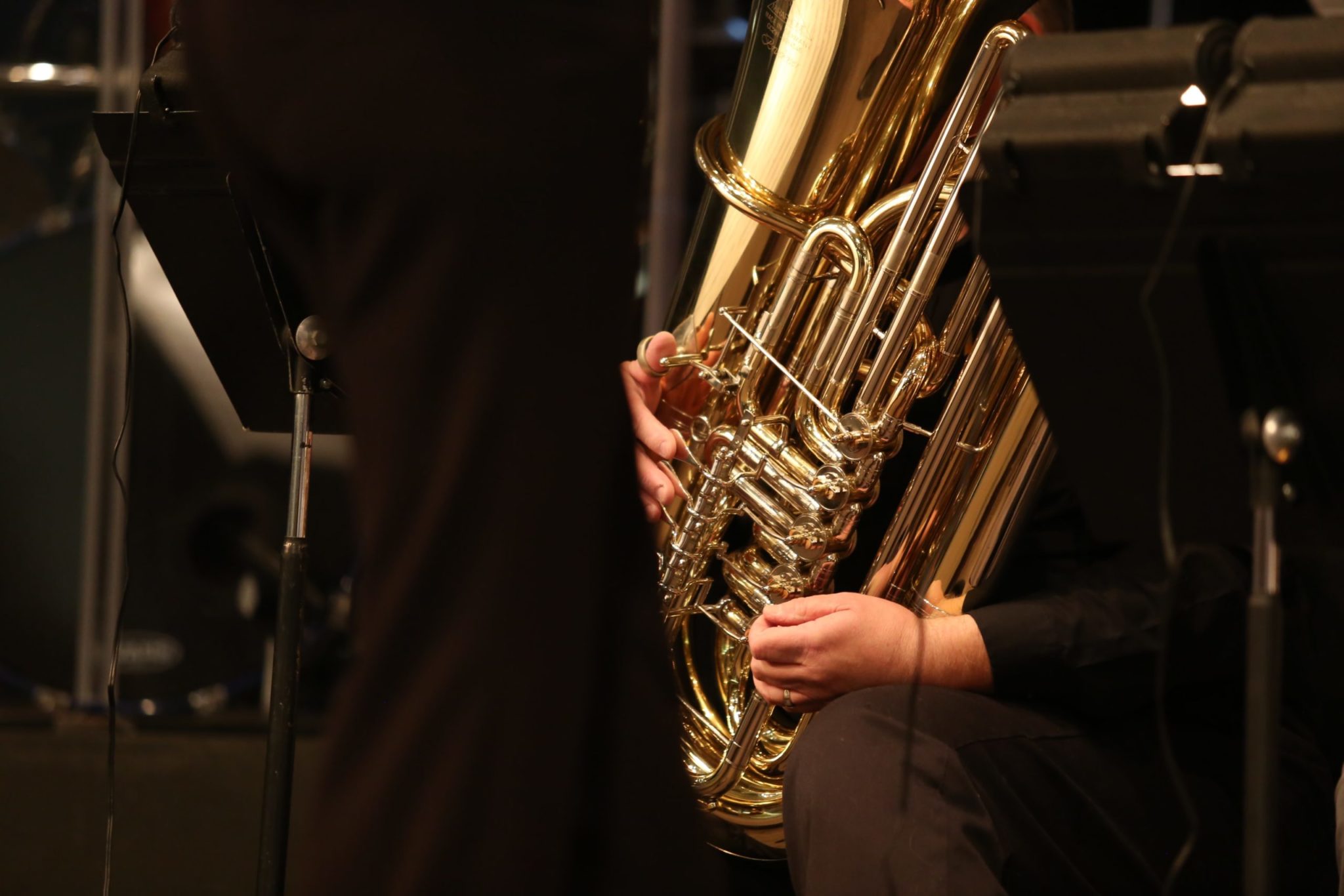YSM students give tuba recital
On Monday, YSM tuba students Vivian Kung and Bridget Conley performed “Sonatine for Tuba and Piano” by Jacques Castérède, “Nocturne, Op. 7” by Franz Strauss, “Adagio from The Limpid Stream, Op. 39” by Dmitri Shostakovich and James Grant’s “Three Furies for Solo Tuba.”

Unsplash
On Monday, a performance by students from faculty tubist Carol Jantsch’s studio was held in Sudler Recital Hall featuring music by composers Jacques Castérède, Franz Strauss, Dmitri Shostakovich and James Grant.
The program opened with Castérède’s “Sonatine for tuba and piano” with Bridget Conly MUS ’23 on tuba and Nenad Ivovic on piano, and was followed by Strauss’s “Nocturne, Op. 7” with Vivian Kung MUS ’22 on tuba and Linda Lee MUS ’23 on piano. Conley took the stage once again with Shostakovich’s “Adagio From ‘The Limpid Stream’, Op. 39”, before Kung played “Three Furies for solo tuba” — the night’s final piece — in solo. The program originally included a medley of hit songs from 2021, but it was removed due to the injury of one horn player and a COVID-19 limitation for the other.
“I try to host a studio recital every year, so that my students have the opportunity to perform,” Jantsch said. “They use it as practice performance for something else that is coming up, it helps them prepare for other things, or just an opportunity to play live in front of people, because that is such an important part of being a performer.”
According to Jantsch, various factors influenced her students’ choices of recital pieces. In Conley’s case, she won a competition last summer and was offered to participate in a virtual recital for the United States Army band tuba conference. “Adagio” and Castérède Sonata — which Conley played in Monday’s recital — will be her portion at the conference.
Conley also explained both pieces that she played were on her “tuba bucket list” for a while, and she finally felt ready to take on and “dig into” all the challenges they presented. Conley expressed that it was “a ton of fun” to play both pieces.
“The Shostakovich is a really beautiful piece that was originally written for cello,” Conley said. “I love performing lyrical, song-like music.”
On the other hand, Kung’s graduation recital will be in about a month, where she will perform two pieces from Monday’s recital: “Nocturne” and “Three Furies.” According to Jantsch, this allowed Kung to get a head start on the repertoire for her upcoming performance and put her in a “really good” spot, since YSM students at this time of the year are going through various audition processes for summer festivals and professional orchestras in addition to their ongoing Yale obligations.
“Our faculty, Carol Jantsch, wants to offer us performance opportunities,” Kung explained. “It’s a great chance to play for others, and even more special this year because COVID-19 has made these types of concerts so rare. It’s wonderful to perform a solo recital — my first one in two years! This studio recital is also a preview of my degree recital, and is a good chance for me to test out playing some solo pieces I’ve selected.”
According to Jantsch, playing with slit masks and instrument covers posed extra challenges to the students, as it takes “extra” effort to play and builds up sweat on the inside of the mask. For Conley, although she understands the necessity of safe COVID-19 protocols, it has regardless been “challenging” to perform with a mask and bell cover.
Conley emphasized that the bell cover presents a specific challenge; It dulls the sound and creates resistance in the horn that wears out the muscles in her face much faster than usual. In addition, the mask can also make it challenging to non-verbally communicate with her collaborative pianist, since they heavily rely on facial cues to enter passages together. While she is “grateful” for the opportunity to perform live during the pandemic, she is still “definitely” looking forward to performing without a mask and bell cover.
Another result of the pandemic was that many musicians are now out of the habit of performing after performances were canceled due to the pandemic, which Kung said created “a bit of a mental struggle.” While Kung thinks that musicians have become accustomed to various University-implemented COVID-19 safety protocols like playing with masks and bell covers, she emphasized that it was a learning curve to figure out how to adjust.
According to Jantsch, the Yale tuba team is unique as it is all female faculty members and students. Jantsch noted that the tuba is traditionally perceived as a male instrument, and it might be the first time ever that a tuba faculty in a university is composed of such individuals.
“We are making history!” she said.
Conley and Kung both echoed Jantsch’s sentiments. Conley feels “so fortunate” to be able to study with Jantsch, she said. For Conley, Jantsch has been a role model since she started playing tuba in middle school — not only because Jantsch is an “incredibly talented” tuba player, but also because she is a word-class artist, teacher and a “phenomenal” human being, Conley said.
“It’s also been such a unique and formative experience to be a member of a studio of all women,” Conley said. “We’re one of the only — and maybe the one and only — schools in the world entirely composed of women; it’s such an honor to learn from talented women like Carol and Vivi [Vivian] and to be a part of the changing demographic landscape.”
YSM’s next concert will be on Feb. 1 at Morse Recital Hall and feature a performance by Benjamin Dettelback on trombone.







